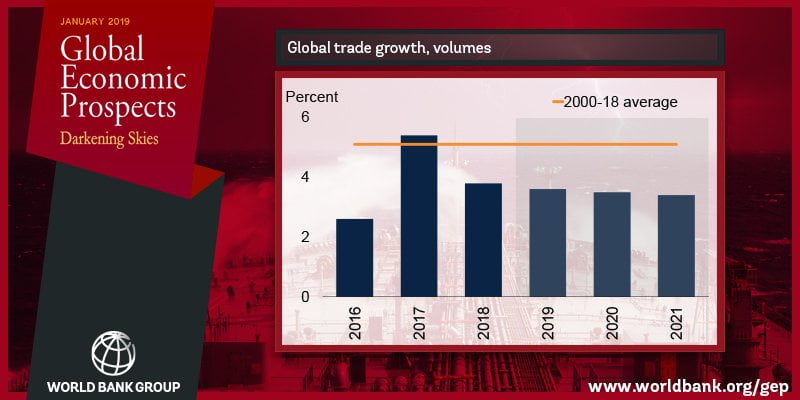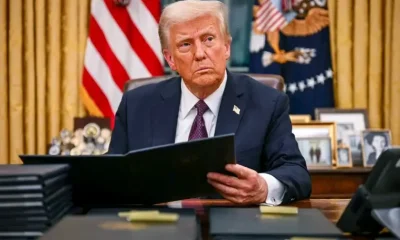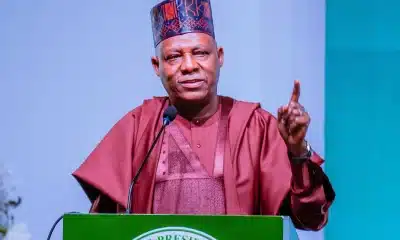Business
World Bank Projects 3.4% GDP Growth For Sub-Saharan Africa In 2019

Nigeria’s real GDP growth will expand by 2.2 per cent in 2019, the World Bank said in its annual Global Economic Prospects published on Wednesday, slightly upgrading the country’s projected growth rate from 2.1 per cent in June 2018.
#WBGEP2019 Global Economic Prospects report says that in 2019, the world will see solid but slower growth due to softening of #globaltrade and manufacturing: https://t.co/NbBjhenl1B via @WorldBank pic.twitter.com/xhPerqDjKK
— Joelle E.S (@joelle_sw) January 9, 2019
#WBGEP2019 Global Economic Prospects report says that in 2019, the world will see solid but slower growth due to softening of #globaltrade and manufacturing: https://t.co/NbBjhenl1B via @WorldBank pic.twitter.com/xhPerqDjKK
— Joelle E.S (@joelle_sw) January 9, 2019
https://platform.twitter.com/widgets.js
Naija News learnt that the World Bank, in its assessment for the year believed that the growth in Sub-Saharan Africa would accelerate to 3.4 per cent due to improved investment in large economies together with continued robust growth in non-resource intensive countries.
“Per capita growth is forecast to remain well below the long-term average in many countries, yielding little progress in poverty reduction.”Growth in Nigeria is expected to rise to 2.2 per cent in 2019, assuming that oil production will recover and a slow improvement in private demand will constrain growth in the non-oil industrial sector.
“Angola is forecast to grow 2.9 per cent in 2019 as the oil sector recovers as new oil fields come on stream and as reforms bolster the business environment.
“South Africa is projected to accelerate modestly to a 1.3 per cent pace, amid constraints on domestic demand and limited government spending,” the bank said.
On the risk to the region’s growth, the World Bank stated that escalated trade tensions between the United States and China could impact negatively on the region.
“Faster than-expected normalisation of advanced-economy monetary policy could result in sharp reductions in capital inflows, higher financing costs and abrupt exchange-rate depreciation.
“Increased reliance on foreign currency borrowing has heightened refinancing and interest rate risk in debtor countries,” the bank noted.
It said domestic risks, in particular, remained elevated, that political uncertainty and a concurrent weakening of economic reforms could continue to weigh on the economic outlook in many countries.
↘️ Global growth expected to slow to 2.9%
➡️ International trade & investment moderating
↗️ Trade tensions remain elevatedMore 2019 Global Economic Prospects in new @WorldBank report: https://t.co/VQQwZ88W5R pic.twitter.com/cEGzNSQs2E
— United Nations (@UN) January 9, 2019
↘️ Global growth expected to slow to 2.9%
➡️ International trade & investment moderating
↗️ Trade tensions remain elevatedMore 2019 Global Economic Prospects in new @WorldBank report: https://t.co/VQQwZ88W5R pic.twitter.com/cEGzNSQs2E
— United Nations (@UN) January 9, 2019
“In countries like Mozambique, Nigeria, and South Africa holding elections in 2019, domestic political considerations could undermine the commitments needed to rein in fiscal deficits, especially where public debt levels are high and rising.
The Bank downgraded global economic growth from 3 per cent in 2018 to 2.9 per cent in 2019 due to trade tensions, rising borrowing costs and persistent policy uncertainties.












